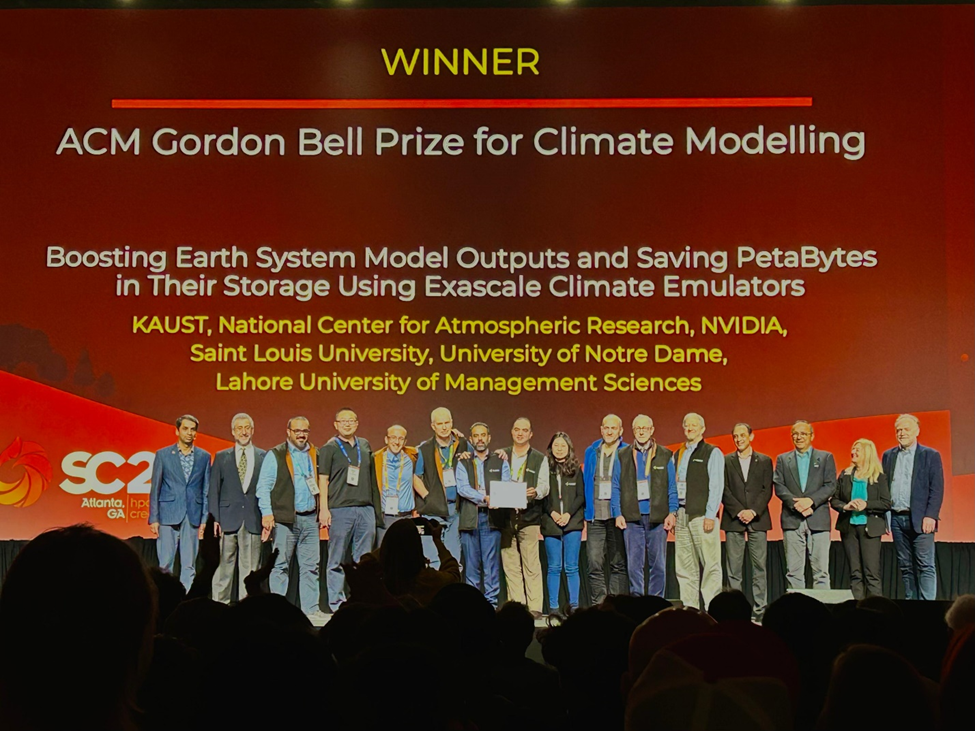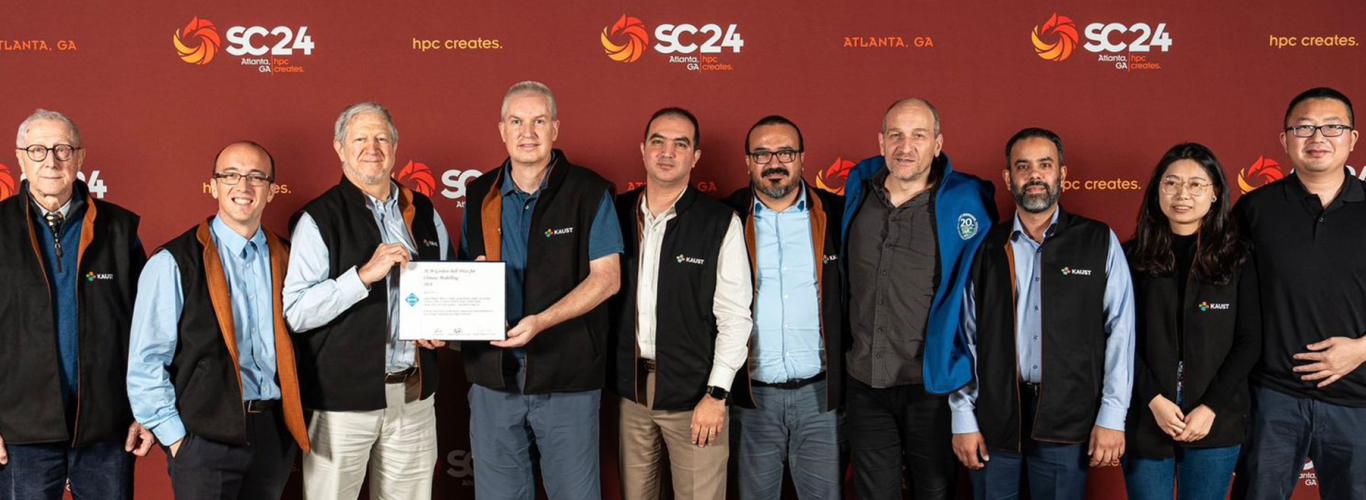LUMS Faculty Becomes First Pakistani to Win the ‘Nobel’ of High-Performance Computing – the Gordon Bell Prize in Climate Modelling
Scientists across the globe have warned that global warming, caused by the human overconsumption of fossil fuels, is reaching a crisis point. This has resulted in bigger and more severe storms, hurricanes, droughts, and wildfires globally, as well as a loss of biodiversity. All these add to a worsening climatic crisis that the world is in today. Therefore, the need to address these issues has become significant as never before.
A multi-institutional team of researchers from across the globe recently came together to find a solution, and developed an ExaScale Climate Emulator: a breakthrough that leverages AI and high-performance computing to enhance climate modelling accuracy and efficiency. Presenting their findings at the Association for Computing Machinery (ACM) conference in Atlanta this November, the 12-member team won the ACM Gordon Bell Prize for Climate Modelling for their project titled “Boosting Earth System Model Outputs and Saving PetaBytes in Their Storage Using Exascale Climate Emulators.” The award recognises innovative parallel computing contributions toward solving the global climate crisis.
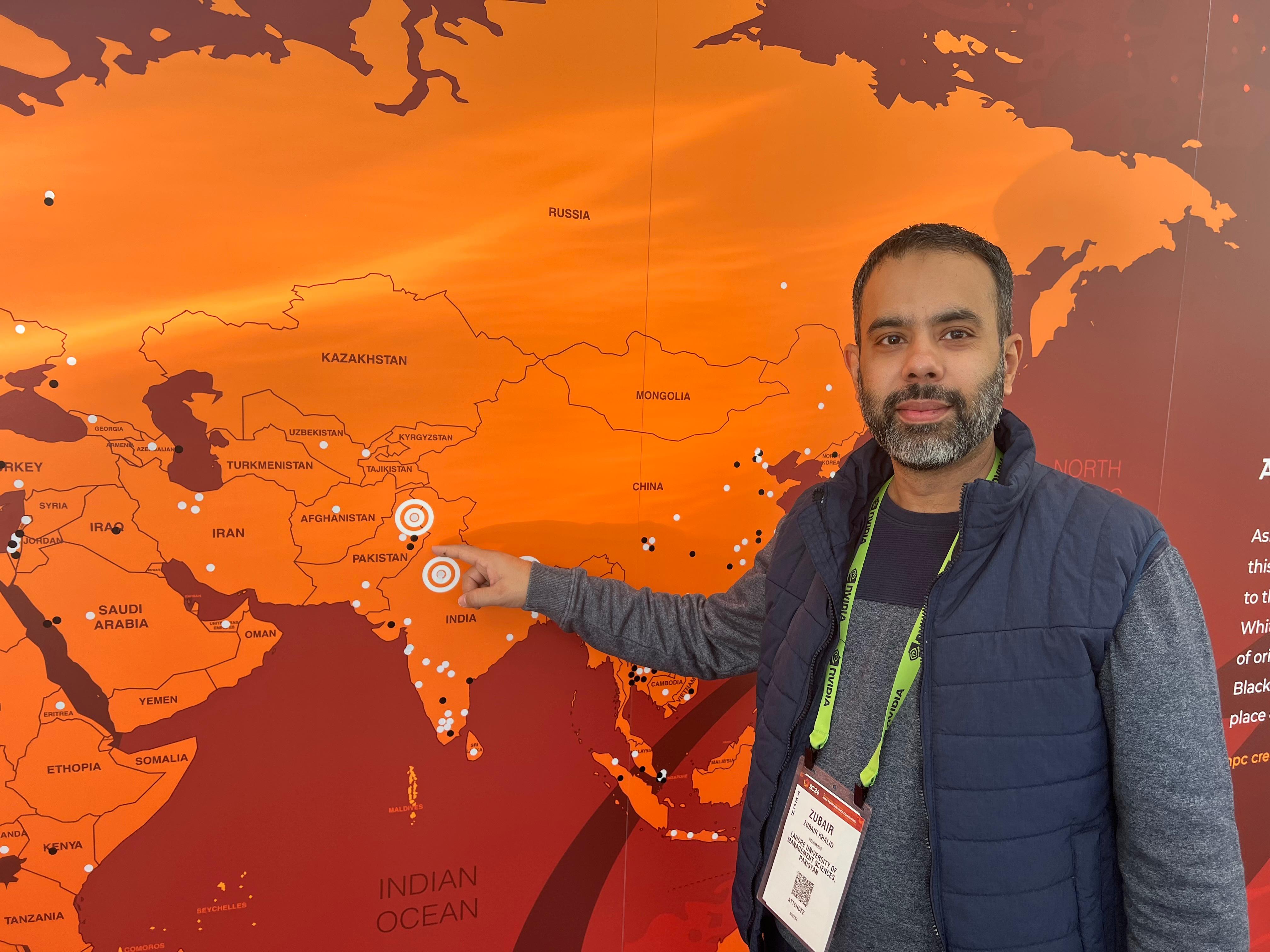
LUMS faculty Dr. Zubair Khalid, Associate Professor of Electrical Engineering at the Syed Babar Ali School of Science and Engineering (SBASSE), is the first Pakistani recipient of the prestigious Gordon Bell Prize in Climate Modeling.
Congratulating Dr. Khalid on the accolade, Dr. Walther Schwarzacher, Dean, SBASSE, said, “This remarkable achievement highlights the outstanding contributions that the School’s faculty are making to address some of the greatest scientific challenges facing our society”.
The Gordon Bell Prize, in its 37th year, is often dubbed the "Nobel Prize of Supercomputing." It is awarded annually to recognise outstanding achievements in the field of high-performance computing (HPC) applied to real-world systems. This prestigious award is named after the pioneering computer architect who founded the U.S. National Science Foundation’s Directorate for Computing and Information Sciences.
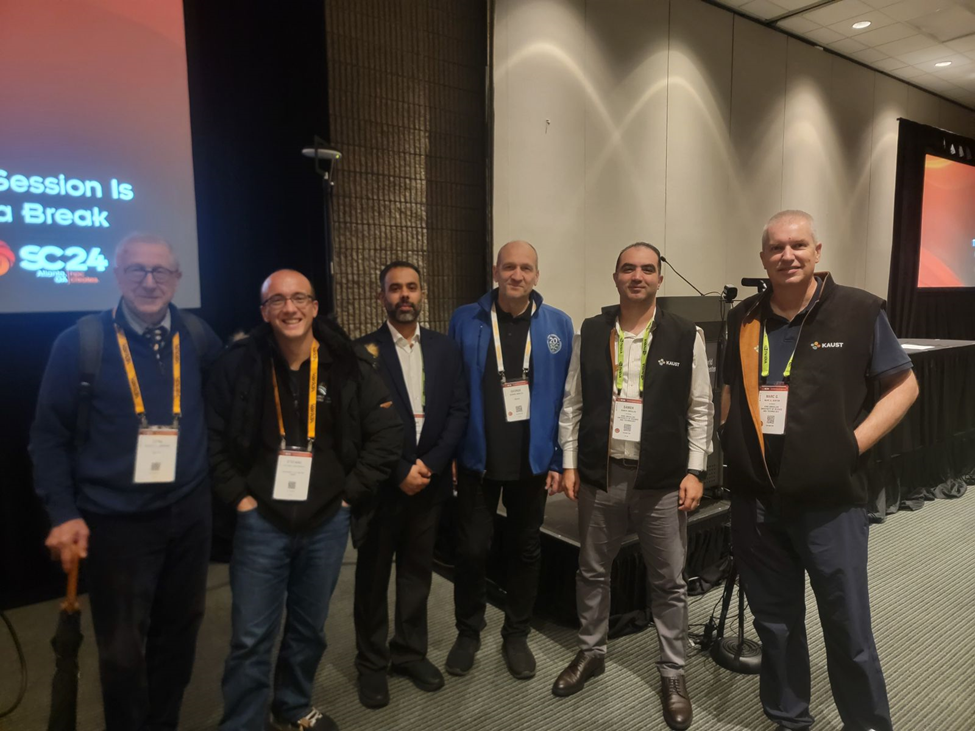
Dr. Khalid’s role in the project was catalysed during his visit to King Abdullah University of Science and Technology, Saudi Arabia (KAUST) back in 2022. The project materialised during his sabbatical at KAUST in 2023-24, when he collaborated with global experts and developed methods for integrating AI with large-scale simulations.
Speaking about the role of LUMS, Dr. Khalid said, “The University has been instrumental in supporting my contributions to this endeavour by fostering an environment that encourages interdisciplinary research and collaboration. Through my Centre for Urban Informatics, Technology, and Policy (CITY), LUMS facilitated my engagement with global research networks and positioned me to contribute to high-impact international projects.”
The project's success was driven by a highly multidisciplinary team, combining expertise in climate science, high-performance computing, and AI-driven modeling. Institutions like KAUST, NSF NCAR, NVIDIA, and LUMS brought together climate experts to validate results, AI researchers to design innovative emulators, and HPC specialists to optimise performance for exascale systems. This unique collaboration bridged science and technology to address one of the most pressing global challenges today.
Team members include Zubair Khalid from LUMS; Sameh Abdulah, Marc G. Genton, David E. Keyes, Hatem Ltaief, Yan Song, Greorgiy L. Stenchikov, and Ying Sun from King Abdullah University of Science and Technology (KAUST), Saudi Arabia; Allison H. Baker from NSF National Center for Atmospheric Research, USA; George Bosilca from NVIDIA, USA; Qinglei Cao from St. Louis University, USA; and Stefano Castruccio from the University of Notre Dame, USA.
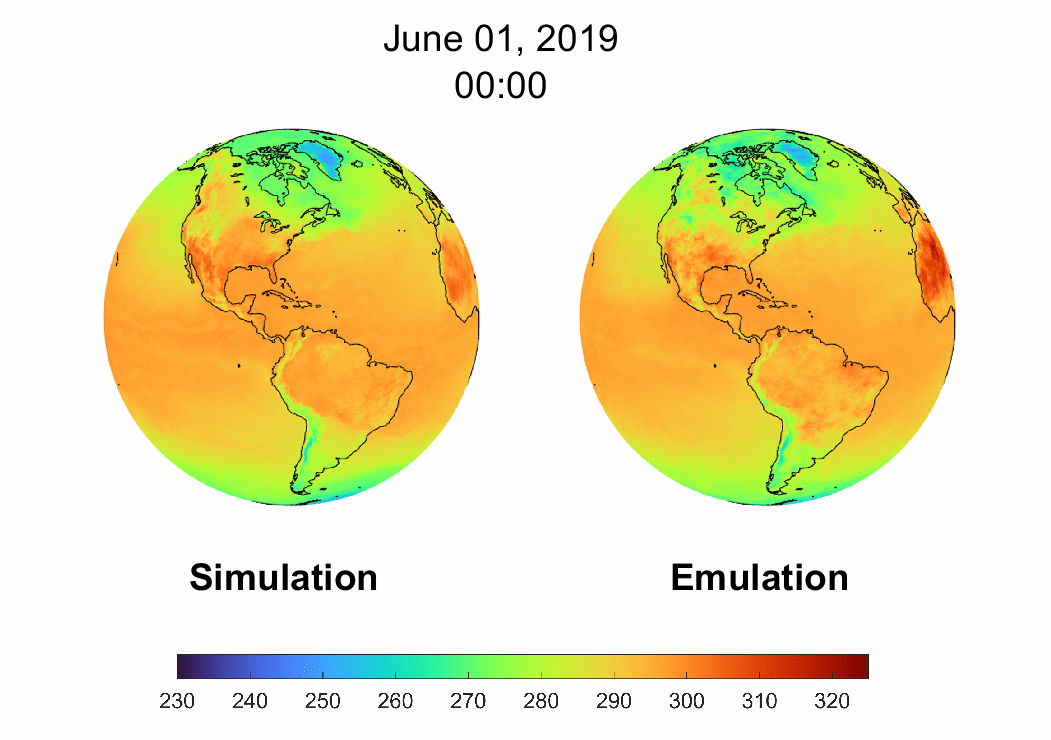
Climate Simulations and Emulations - Ultra high-resolution 2m surface temperature at hourly interval 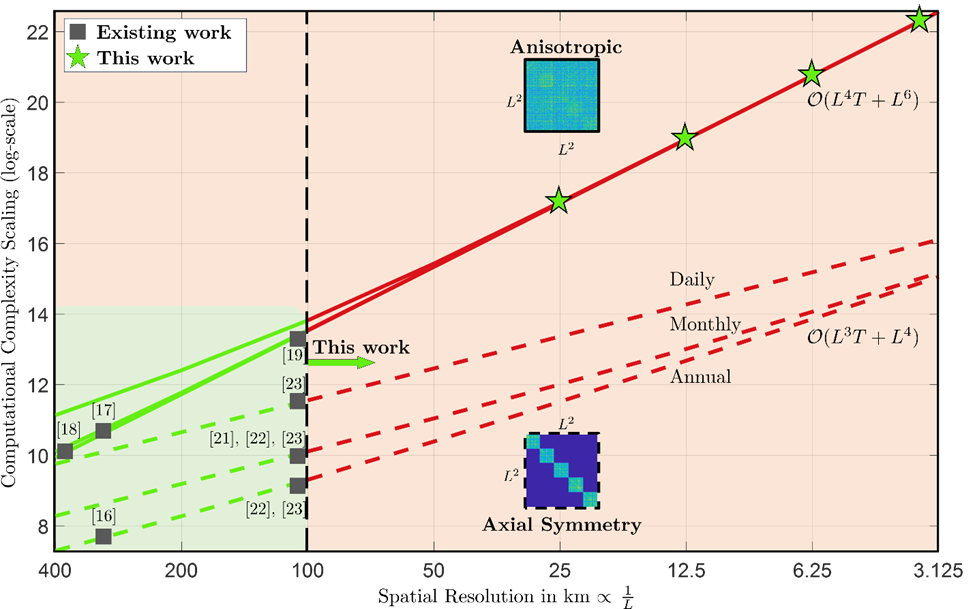
Speaking about the ‘wow’ element of the project that made it stand out, Dr. Khalid stated: “Our proposed work surpasses existing climate emulators by a factor of 245,280 (3.25 km spatial and hourly in time), and we could execute our code on different GPU families, running on four of the world’s top nine supercomputers (Frontier, Alps, Leonardo and Summit), including exascale performance on the top-ranked system Frontier supercomputer.”
For the layperson, the team’s high-resolution climate emulator translates into faster, more precise, and actionable insights about climate change impacts at a local and global scale. For example, its predicts extreme weather events like floods, heatwaves, or hurricanes more accurately and on smaller scales, such as specific towns or neighbourhoods.
As the team works on extending the project to design a regional climate emulator, several breakthroughs are on the horizon. We wish Dr. Khalid and this team the best of luck for the future!
